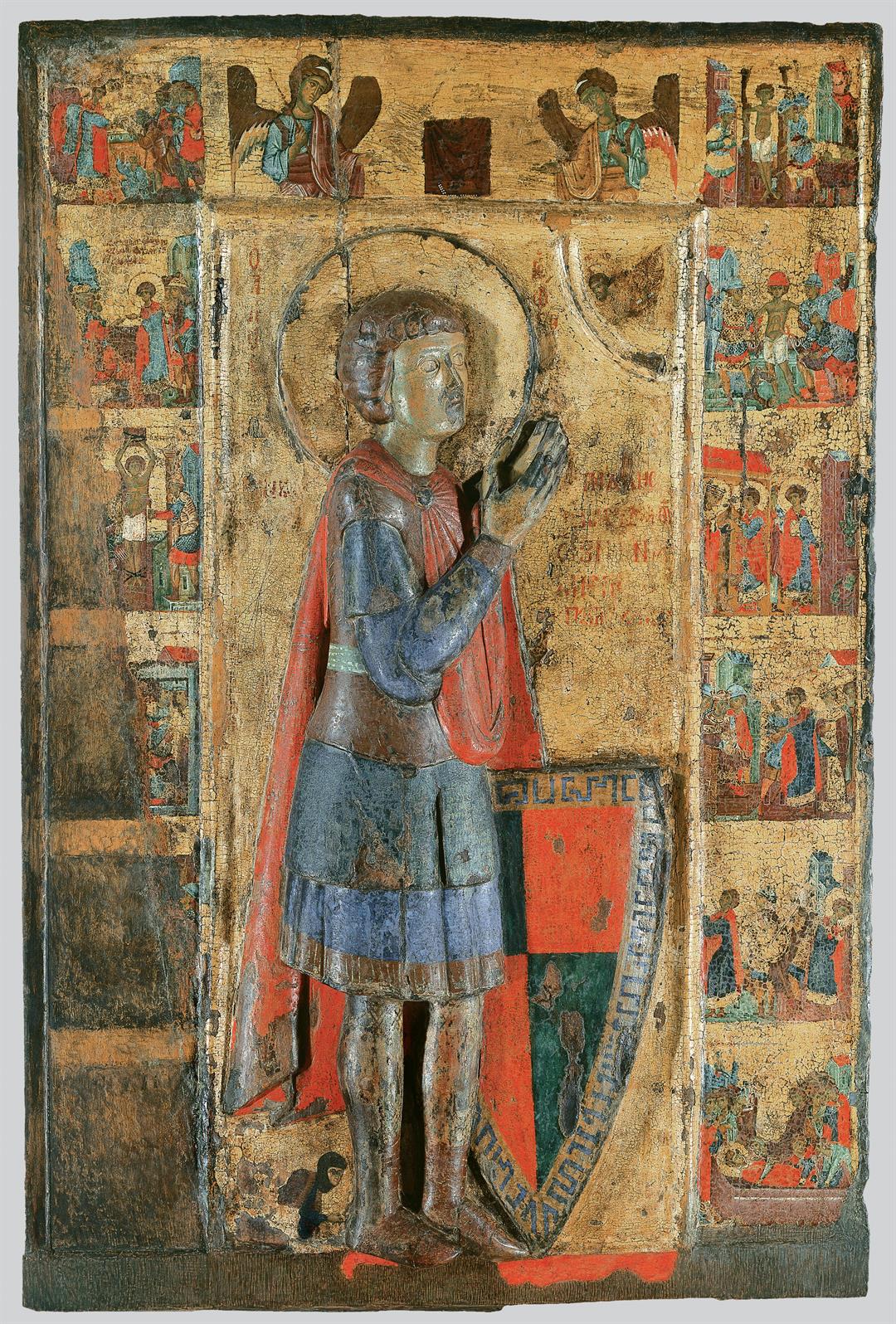
Try Amazon Audible Premium Plus and Get Up to Two Free Audiobooks
Byzantine Relief Icon of St George the Cappadocian, Kastoria, Latin Greece, mid 13th Century.
Byzantine and Christian Museum ΒΧΜ 01108.



The central figure of St George the Cappadocian on the front is in relief, and scenes from his life are painted in panels around the flat frame, which is integral with the wood of the icon. On the back female saints are depicted. The western elements that can be seen on the front, such as the coat-of-arms on the saint’s shield, attest to the influence exercised by the Frankish conquest of 1204 on the art of the eastern Mediterranean. This double-sided icon, which dates in the mid-13th c., is a combination of wood-carving and painting unique in Byzantine art.
Collection: Icons and Wood-Carvings
Origin: Kastoria
Measurement: 107 x 72 cm
Exhibit Number: ΒΧΜ 01108
Appears in: II.6. FRANKS AND LATINS IN BYZANTIUM
Source: Byzantine and Christian Museum
[The back has a Greek inscription on Jesus Christ: ΙC -ΧC with latin style tilds ~ to indicate an abreviation. C is used instead of Σ in medieval greek.]